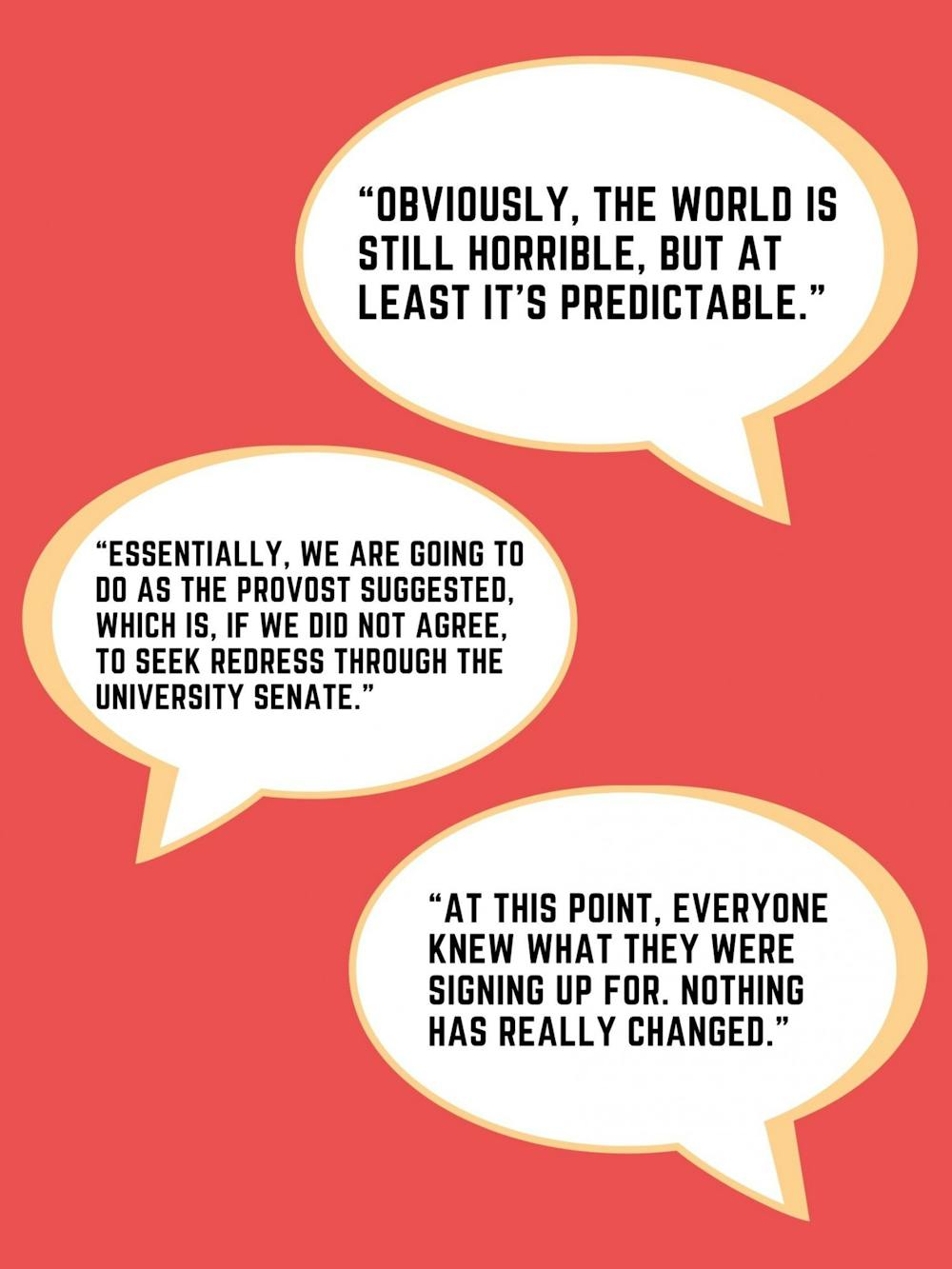One day after Miami University emailed the student body about its return to the standard academic practice of limited credit/no credit policy options, the Associated Student Government (ASG) started a petition advocating for the extension of emergency academic policies.
A joint email from the Office of the Provost and ASG was sent on Jan. 21, reminding students of the academic calendar changes, including the credit/no credit change. Additional information on the email specified coronavirus accommodations and attendance policies.
The email, signed by Assistant Provost Jeffrey Wanko and members of ASG Ruku Pal and Ben Maldonado, was sent a day before ASG’s petition was published.
Pal, secretary for academic affairs, said she signed the email with the intention of informing the student body of the changes, but the decision to return to pre-COVID policies was not a joint one between the provost’s office and the ASG. Pal said she disagrees with its implementation.
Provost Jason Osborne said he was “under the impression there was extensive conversation” between his office and members of ASG about the reversion to normal policies.
Pal said she was informed of the decision in November, and Osborne suggested bringing concerns to the University Senate.
Wanko said the decision to revert the policy was not without student input, as members of ASG proposed continuing the policy in the University Senate.
“It was definitely not a preordained decision,” Wanko said. “[University] Senate helped to ignite some students to encourage them to present a counter argument, which they did, and which we heard and we considered.”
Wanko said he informed the student representatives from the beginning that this policy decision would be a hard one to consider what the students were proposing.
“Essentially, we are going to do as the Provost suggested, which is, if we did not agree, to seek redress through the University Senate,” Pal said. “We will be moving forward with that avenue, of course.”
Pal said she has spoken with leaders of student organizations and individuals who have concerns about the policy reversion.
Ben Maldonado, chair of the ASG COVID-19 ad hoc committee, also disagrees with the policy reversion and said the petition is a way to garner support from students.
Enjoy what you're reading?
Signup for our newsletter
“We wanted to make sure that we were really representing the student body,” Maldonado said. “So, in order to best do that, we decided to start that petition and make sure we had everyone’s support there.”
Pal said ASG plans to take all the names on the petition and put it forward in a proposal to the university senate, advocating for the student body. As of Jan. 24, the petition had close to 1,000 signatures.
Last spring, Miami implemented considerable extensions to the credit/no credit application dates and expanded the eligible classes under the policy after the COVID-19 pandemic introduced unpredictable circumstances.
This semester, students must indicate the credit/no credit change in their schedule two and a half weeks after classes begin. In the fall of 2020, students had almost three months to implement this change in their courses.
With the return to pre-pandemic policies, students also can no longer take classes required for their major as credit/no credit.
Wanko said the decision was made after surveying other institutions’ policies and coming to the conclusion that Miami students were being put at a disadvantage because of the extended policy.
Osborne said his office didn’t see a rationale for continuing the extended policy, citing concerns such as a lack of semester GPAs, graduate school or job search disadvantages and pursuing different policies than other universities.
“I don’t think credit/no credit is the right remedy for some of the things we’re dealing with right now,” Osborne said. “Obviously, the world is still horrible, but at least it’s predictable.”
Osborne said the return to pre-COVID policies is a step toward more typical university operations.
“Hopefully that level of disruption where students and faculty don't know what they're getting into isn’t a big concern [like it was] last spring,” Osborne said. “At this point, everyone knew what they were signing up for. Nothing has really changed.”
Osborne said he was not aware of the petition before being contacted by The Miami Student and said “lots of people” were consulted in the decision-making process. Wanko was not aware of the petition either.
“There was an existing policy, and all we’ve done is provided a variance for that certain policy,” Osborne said. “That always should be viewed as a temporary measure under emergency situations. I would not expect a petition, right now, is going to change how we’re approaching the semester. I’m comfortable where we are but also open to discussion.”




